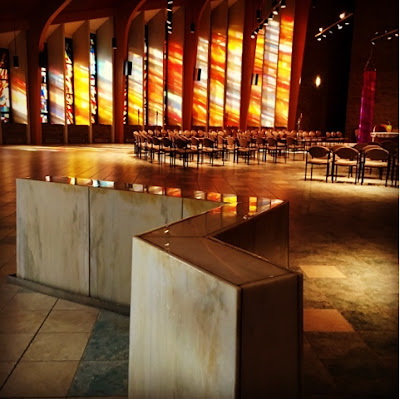The Vows and Community
It seems to me that there are varying opinions among
religious today as to what it means to profess vows in the context of a
religious community. Does it mean we
need to live together? Does it mean we live
alone and come together to celebrate, to mourn, and to pray? We live in a very individualist culture and
the many ways community is interpreted reflects that culture.
The vows of evangelical poverty, chastity and obedience
which we profess, we profess to God.
These vows evolved in opposition to power, sex and greed. To me, they mean a whole-hearted commitment
to live as Jesus lived, to love as Jesus loved and to obey God as Jesus obeyed
God. As members of the Sisters of the
Humility of Mary, “We share in Jesus’ mission of bringing more abundant life to
God’s people, especially to those who are poor, by announcing the liberating
message of the gospel and by the witness of our lives” (HM Constitutions No.
3).
While my vows are to God, they are also professed according
to the constitutions of the community.
Anyone could profess these same vows to God independently, so what does
professing them in the context of a religious community mean? To me it means that I am also committing to
whole-heartedly share life with my community.
Community does not just happen.
Like any relationship it requires commitment;
it takes work.
I came across an article
by M Scott Peck, MD titled
The Different
Drum: Community Making and Peace (
http://www.entcom.eu/wp-content/uploads/2015/10/Entcom-WS-Report-Annex2.pdf).
In it, Peck offers “that the real dream
should be: ‘If we can live together in community, then someday we shall be able
to resolve our conflicts.’" Religious life stands as a model for a counter-cultural
way of living that is a prophetic witness to an egalitarian approach to being
community. If Peck is accurate in his assessment of what true community is,
then, is living together the way that we are able to be more; the way we become
the model and prophetic witness of peace?
~ Sr. Audrey






